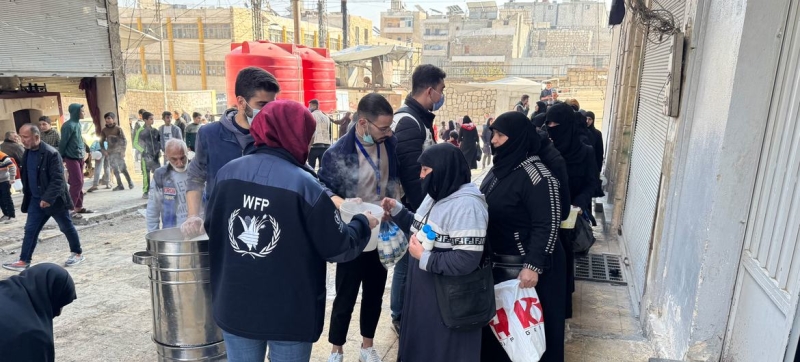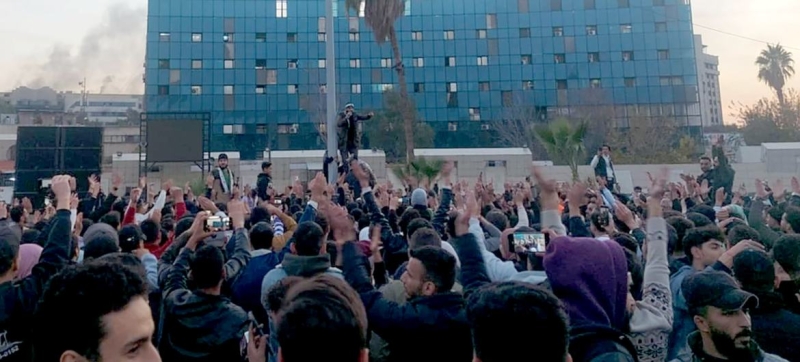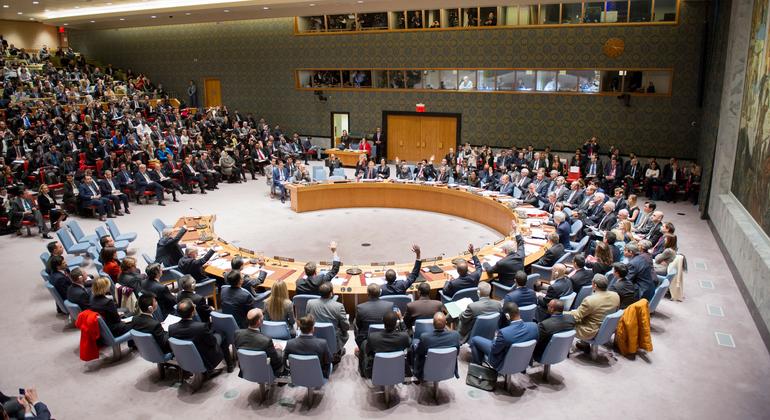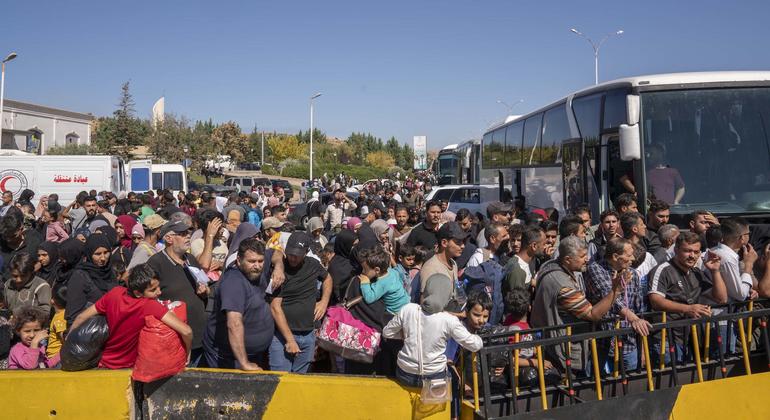
People in Aleppo, Syria, receive hot meals from WFP workers. Group that seized power in Syria designated as terrorist organization – what next? International Law
The armed group Hayat Tahrir al-Sham (HTS), designated as a terrorist organization by the UN Security Council, has become the main political and military force in Syria since the fall of Bashar al-Assad. However, HTS remains designated as a terrorist organization under a key Security Council resolution adopted at the height of the civil conflict.
Resolution 2254, unanimously adopted by the Security Council in 2015, requires UN member states to prevent and suppress terrorist activity, including that perpetrated by HTS’s predecessor, the Nusra Front.
Could the group’s current status become an obstacle to UN-led international negotiations and efforts to establish a stable peace in Syria with strong and inclusive state institutions?? And what would it take for HTS to cease being considered a terrorist organization??
UN News spoke to Ki Ho Cha, a senior official in the UN Department of Political Affairs, to find out how the Security Council imposes sanctions on groups and individuals, and the process for removing them.

People celebrate the fall of the Assad regime on the streets of Damascus.
Ki Ho Cha: Hayat Tahrir al-Sham was included in the sanctions list in May 2014, when the Security Council Committee overseeing sanctions against ISIS (Daesh) and al-Qaeda designated it a terrorist organization with close ties to al-Qaeda.
In its report published in July 2024, the committee’s monitoring group said HTS remains the main terrorist force in northwest Syria. Its alleged leader, Abu Muhammad al-Julani, is also on the list.
UN News Service: How HTS’s designation as a terrorist organization has affected its activities?
Ki Ho Cha: There are three main measures in place against the group: an asset freeze, a travel ban, and an arms embargo. All UN member states are required to comply with these sanctions.

UN News Service: Apart from international sanctions, are there any unilateral measures being taken?
Ki Ho Cha: Yes, individual countries are imposing their own sanctions, but this is not related to the UN’s activities. For example, HTS is on the list of the US Office of Foreign Assets Control.
UN News Service: How Terrorist Designation Affects Talks on Syria’s Future?
Ki Ho Cha: Until recently, there were serious concerns that humanitarian organizations would no longer be able to operate in Syria. However, an exception to the freezing of HTS assets has now been introduced that applies to humanitarian missions.
This measure was adopted last week, just days before the fall of the Assad regime. This has been a real lifesaver, as it has allowed humanitarian organizations to continue their activities without fear of violating the sanctions regime.
UN News Service: Are there similar exemptions for other countries, such as Afghanistan, where the de facto ruling group, the Taliban, is also not recognized internationally??
Ki Ho Cha: Yes, Security Council resolutions provide for such exemptions, as in the case of Afghanistan. We are committed to ensuring the timely delivery of humanitarian assistance and reducing the risks for organizations operating in such circumstances.

UN News Service: Is it possible to create exceptions for international negotiations?
Ki Ho Cha: Yes, there is a procedure allowing individuals or organizations to petition for exemption from sanctions. For example, Taliban members can request permission to travel outside Afghanistan for political talks or medical reasons.
UN News Service: What it takes to remove HTS from the terrorist list?
Ki Ho Cha: A member state must make a formal proposal for delisting. The proposal is then considered by a Security Council Committee, which consists of representatives from 15 countries. Unanimous approval is required for the decision to be made.
UN News Service: Have similar proposals been made before??
Ki Ho Cha: Some countries may be discussing the possibility, but there have been no formal requests yet.
